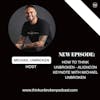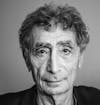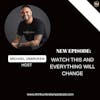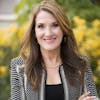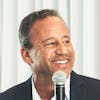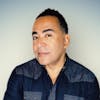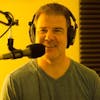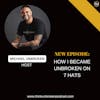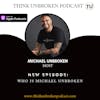E341: Neuroscience of holistic health and wellness with Jonathan Le | CPTSD and Mental Health Podcast
Did you know that it's possible to rewire the neuro pathways of your brain? Do you know about neuroplasticity? Do you know about how the amygdala and the hippocampus work? Do you know how to access your prefrontal cortex?
See show notes at: https://www.thinkunbrokenpodcast.com/e341-neuroscience-of-holistic-health-and-wellness-with-jonathan-le-cptsd-and-mental-health-podcast/#show-notes
Did you know that it's possible to rewire the neuro pathways of your brain? Do you know about neuroplasticity? Do you know about how the amygdala and the hippocampus work? Do you know how to access your prefrontal cortex?
I'm very excited about today's episode with my guest, clinical psychologist Jonathan Le, who is an absolute, incredible human being who has helped thousands of people be able to step into their healing journey. I invited Jonathan onto the show, so he could talk about many different things, including his H.E.N model, which he'll get into, as well as what I think is a really important and fascinating aspect of mental health that's not talked about a lot nor enough it is the bio psychological models including how to create a healthy and holistic healing approach. I really appreciated being able to have this conversation with Jonathan because even as someone who is deep into this mental health recovery, healing trauma overcoming game, this thing that we do here at Think Unbroken, I’m always want to learn, I'm always trying to develop new tools, I'm trying to have better understandings about the world, I'm always trying to get to what is next in life, and this conversation was absolutely phenomenal.
So, I'm inviting you to come and check it out.
Sit with us, listen, and take this in.
And you may want to listen to this episode more than once because Jonathan will lay out some incredibly practical tools and understandings that I believe will benefit you on your journey.
Learn More About Jonathan Le at: https://www.anchorpointpc.com/
Learn more about Think Unbroken and Pre-Order my new book: Unbroken Man. Plus, learn more about the free coaching and other mental health programs. Click here: https://linktr.ee/michaelunbroken
Support the Podcast: Become a listed sponsor!
Follow me on Instagram @MichaelUnbroken
Learn more about coaching at https://coaching.thinkunbroken.com
Get your FREE copy of my #1 Best-Selling Book Think Unbroken: https://book.thinkunbroken.com/
Michael: Hey! What's up, Unbroken Nation. Hope that you're doing well, wherever you are in the world today. I'm very excited to be back with you with another episode with my guest, Jonathan Le who is a licensed clinical professional, counselor and the founder of anchor point professional counseling, Jonathan, my friend, how are you? What is happening in your world today?
Jonathan: I'm doing great. Thank you so much for having me today.
Michael: Yeah, man. It's my absolute pleasure. I'm excited to have this conversation with you. For those who do not know you tell us a little bit about your backstory and how you got to where you are?
Jonathan: Yeah, so a little bit of a family background history. My parents are immigrants. So, I'm actually a first generation, everything, first generation business owner, college graduate, pretty much everything in life is a first for me. But my mom actually migrated here from Cambodia, she was a survivor of the Cambodian genocide, which was this genocide that happened back in the 1970s, it basically killed off almost 2 million people in that country at the time, there was this communist party that invaded the country and pretty much enslaved everyone that was living there at the time, including my mom and her family. She was fortunately able to survive through that entire genocide but unfortunately that killed off most of her family members, her parents, aunts, uncles, everyone around her, except for her and her siblings who were able to successfully migrate here to the U.S. and be sponsored by other people.
So, part of my family history even starts off in a place of trauma, just having gone through so much pain and hurt in the past. If anything, my mom had a huge impact in helping mold and shape and craft the man that I am today. She really did an excellent job of instilling work ethic and understanding the value and importance of working hard for everything that you earn, having come from a place of basically nothing. When my mom migrated here, she was a housekeeper and we were just barely surviving paycheck to paycheck. My father actually, basically got into an accident when I was two months old, he suffered a stroke and he paralysis in half of his body. And when he recovered from the stroke, there was permanent mental brain damage. So, he's been on social security disability, pretty much my entire life and I've grown up in a family dynamic where I pretty much had to be the primary caretaker and the person who was the parent in a role reversal type of way growing. But I learned a lot about being independent, working really hard and my mother did an excellent job of instilling a lot of the values that I ended up growing up in. Another key part of who I am and a little bit of my background as well. I'm actually a Christian, I identify as being a Christian and I'm also the first Christian in my family as well.
So, I actually grew up as a Buddhist my family and I practiced Teva Buddhism. So, every weekend we would go to these temples and we would pray before these statues’ idols. And I believed a lot in ancestral prayer and the caste system and just a lot of different tenants that fell in, in Teva Buddhism. But when I was about seven years old, I started attending this church to take Mandarin lessons. And from there, that's when my classmates from Chinese school invited me to come to church with them and just being able to experience and witness God's love being manifested in different people's lives, played a huge impact in just my curiosity and my pursuit of trying to understand who this loving God was that everyone around me was so perfectly like embodying and how they loved each other and everyone around them. So, at the age of 13, that's when I became a Christian and man, the Lord is just directed my path in such a way that leadership has always been one of the core fundamental things that I've been wired for ever since I was a team, as soon as I started going, becoming a Christian I've entered for my pastor. And so many doors opened up for me and then in terms of the psychology field and mental health specifically, I have always been the go-to person for friends whenever they wanted to talk about problems or issues in life, they would always come to me. And so ever since like middle school, I had an inkling that this was a passion of mine and something that I may want to consider doing for the rest of my life. And I'm very blessed in that every single job opportunity in my life has literally just dropped in my lap.
So, my very first official job was actually in high school where basically what happened was, I was helping a lady carry boxes to her house and she just happened to work for the counseling center at university of Maryland. And she hired me right on the spot, knowing that my intent was to be a mental health professional.
So, I automatically got exposure to being able to sit in and observe on different counselors’ sessions with college students, that was my initial exposure. And then from there so many other doors opened up over the years and over time. So, I've been incredibly blessed to just have gone through so many different mental health practices and organizations and gotten a little bit of a taste so many different things when it comes to helping and healing others in so many different capacities starting with coaching with college students and then going into suicide intervention at a crisis center, supervising volunteers there, teaching them how to talk to and help people that are considering committing suicide or homicidal in those settings and then diving into private practice up until about 2019 when the door opened for me to be able to open up my own practice in North Bethesda, Maryland, so that's where I am today.
Michael: Wow. It's quite the story, my friend and as you're speaking, the thing that comes to mind for me, at such a young age, how did you know that this was what you wanted to do? Like what were the indicators cause, and I'm asking this question. Cause I think for many people growing up, especially like you're navigating a bit of chaos in childhood, right? And so many people are like I want this thing, I believe this is my dream and they inevitably just don't go for it. And so, I'm curious about what kind of transpired that led you down that path to where now you're able to help so many people?
Jonathan: Yeah, I think because of the brokenness that I encountered and just experienced growing up especially with my mom had severe PTSD from the genocide. The number of homicides that she witnessed, the number of killings, the number of deaths that she experienced hands on, I was a product of a family dynamic where there was so much trauma and so much brokenness that was already embedded within the fabric and framework of who we were as a family. And one of the things that created in me was this sense of resilience. And I think something that I started to experience and recognize in myself at an early age was that I had a gift and ability to not just be empathetic and compassionate towards others, but to help people rewrite and recreate their stories in such a way where the pain and the hurts and the turmoil that they've gone through in their past means something, very powerful because there's a lesson that can always be learned from every single trial and struggle that we go through. So, even for me as a child, I went through a lot, just having had to take care of my parents and grieving over not having the types of parents that I desired to have as caretakers growing up, especially in comparison to my other peers, all around me but one thing I did learn was to take the story that I had and turn it into something beautiful, something that I was able to use to help empower and encourage others who also encountered dysfunction and brokenness in their families as well. So, at an early age, as I was relating to people around me, I was able to encourage them and keep them accountable to, and provide a lot of healing and support for people that experience brokenness. And then as I got older the tools and the resources and the knowledge that came available to me over time to help enhance and hone in on those skills just became greater and greater as more opportunities opened up for me to serve and to help heal others as well.
Michael: And hearing that the thing that popped into my head was growing up, kids would always call me coach. And it's really interesting how that has become this really interesting pillar of my life, my career and what I'm doing to create change in the world. Another thing that came to mind was this idea about turning your pain into your passion. And I think one of most beautiful things and I know it's a weird way to phrase it, but one of the most beautiful things about traumatic experiences, the backside of it is that being able to be of service, being able to help, being able to create these pathways for people. And I think one of the things people often get stuck on is just the suffering of it all right? And they're like, man, I get it. I hear you guys. Your life is better. You're different. You're serving. But for me, it's like I'm still stuck. I'm still suffering. I'm still heard there, there's no pleasure in my life, but I know that there's so much research, so much science and the neuroscience of pleasure is such a big part of what you talk about. And I would love for you to dive into neuroplasticity about rewiring our brains, our neural pathways and how to really take ownership over your life?
Jonathan: Yeah. I'm so glad you brought that up too, because that is a huge thing that I talk about so frequently with my clients, day after day, right? This idea of neuroplasticity, the simple principle that we have the ability and capacity to rewire the neural pathways in our brains. So, to oversimplify a difficult concept, just to make it a little bit easier to understand there's this region of our brain called the ventral strain, it's essentially where the pleasure center of our brains are. So, as human beings, we are wired to prioritize the things that bring us pleasure and joy at the end of the day. So, all the things that people prioritize, money, sex, family, all the different activities and things that we put first in our lives. We base a lot of our lifestyle habits and rhythms and patterns based on pleasure.
So, one of the key ways to rewire the neural pathways in our brains is to invite opportunities to experience the joy and the pleasure and the satisfaction and gratification of a new, healthier habit and behavior. And over time, the pairing and the association between the stimulus and the dopamine that gets released in our brains in response to the pleasure that we receive is what helps unconsciously rewire and retrain our brains to then accommodate for new healthier habits and patterns.
It's something that I talk about all the time. I do a lot of couples counseling myself, and one way that Neuroplasticity plays out is even in how we relate to other people, right? We, in relationships to other people experience so much conflict and tension as a society, whether there's anger, bitterness, frustration, disappointment that interferes with our ability to connect with and relate to other people, but one way to rewire how we connect with and to become more intimate and more deep and have more meaningful relationships is to invite pockets and windows of opportunity to really experience pleasure and joy in how we connect with others. And one of the ways we do that is through holistic health and wellness. So that's part of why from my perspective, as a counselor, one thing I talk about very frequently is the bio psychosocial model just this idea that in order to maximize our capacity for being able to be as healthy and well-rounded as we can be, we have to look out for four areas of our health and wellness, our biological, our psychological, our social, and our spiritual health and wellness. So, in a lot of the things that I encourage and invite my clients to practice their pockets and windows of opportunity in each of these four categories to on a daily basis, continually practice, healthy habits that rewire their neural pathways and challenge them to experience joy and pleasure in the new healthier lifestyle patterns that they're living into day by day.
Michael: Let's go into that a little bit deeper because I think that one of the things, we could do here is set a precedent and a baseline for people to understand the science of actually what's happening in those moments, in those pockets of joy. Cause even this morning, I'll give you a great example. Normally my mornings is like I wake up meditate journal, go to the gym, get into the show. And this morning I woke up and I thought to myself, actually, you know what I wanna do, I'm gonna drive out to red rocks here in Denver, I'm gonna climb all the stairs as my workout, and I'm gonna sit there for half an hour and just absorb and be present and experience the world and let that thing soak in. And for me, like I recognize, I understand what happens in those moments where you're leveraging the thing that brings you pleasure in your life. But can you talk about, and breakdown for someone listening right now. What is actually happening in the brain when you're stepping into creating joy in your life?
Jonathan: Yeah. So, let's take one specific example, right? Emotional processing. I think as a society, we have a tendency of devaluing and minimizing the significance and importance of simply just being a present with negative emotions. So, one exercise and activity, I encourage my and invite my clients to practice is emotional check-ins.
So, I have this feeling where it's checklist that I give to a lot of my clients where it has a list of over a hundred emotionally adjectival works to describe your internal state of being, right? It's broken down into seven different columns, mad, sad, glad, afraid, ashamed, lonely the list goes on and the intensity of that emotion becomes greater and greater as you go further down the column in each of those sections, when you're processing whatever emotion, it is. I'm so glad you brought up the importance of mindfulness, because this is also an opportunity to practice, being present and aware with everything that's going on with yourself. So, in addition to the neuroscience of our brains and what's going on, we're also primed to learn in a multi-sensory type of way. And so, in order for us to really latch onto and soak in whatever thing we're trying to learn, we have to integrate as many of our five senses as we possibly can. So, for something as simple as emotional processing, when it comes to difficult or negative emotions, being able to sit in the moment, setting an alarm on your phone for any time of the day, right?
It could be 12:30 during the lunch hour, it could be 6:45 in the evening, it could be early morning once you get up, 10 to 15 minutes, stop what you're doing. Take a moment to look at that feeling where it's checklist, pick a word that resonates with you in that given moment. And sit with that feeling, whatever that emotion or whatever that feeling is in that given moment, simply just sitting with it and being present in the moment. And as you're paying attention to that emotion and that feeling, you're paying attention to everything that's going on with you somatically. And what I mean by that is, where are you sensing the emotion and the feeling in your body. Sometimes we minimize and we diminish the significance of how emotions physiologically, manifest in our bodies, whether we get tension in our shoulders or jaws or neck or upper back area. So, what ends up happening is when we take a moment just to observe and to sit back and learn from those emotions, we start to experience this sense of relief, cuz we're like, wow, I didn't even realize that this was what was happening.
So, this region of our brain that I was describing, the ventral strum, what ends up happening is from a neurological level there's dopamine that gets relief least. And there's this association, this cognitive association that your brain creates once the pleasure and the joy is then received and experienced by you. So, from that experience, even integrating something multi-sensory, as I'm gonna pay attention to my body rhythms, I'm going to focus on my breathing, I'm going to focus on how I feel right now I'm going to verbalize it and speak it out loud, so it's auditory as well, be able to integrate multiple senses, gives you the opportunity to really soak in that experience and go, wow, okay, in this moment, I'm learning about all these different things that are going on with me. Let me continue to do this, cuz this kind of feels good and there's this sense of relief that comes with being able to release some of that negative energy, being aware of it, being present with it, not ignoring it, not distracting from it, but just being there in that moment.
Michael: So, I'll speak for myself. And I think a lot of people will resonate with what I'm about to say like, Jonathan, I hear you, but when these things show up, and in my experience, until I was able to be able to navigate them effectively, it was like I had to run, the second I need to disappear, it's the association with the fear of stepping into it. So, for people who are, let's say, they're just starting this journey, they're hearing this. And they're like, okay, I guess I'm learning about dopamine and these neural pathways and it's confusing, when I get angry, when I get frustrated or even if I'm happy, like I run, I hide, they disappear. What would you tell those people?
Jonathan: Yeah, that's an excellent question. And one thing that I do want to bring up is that whenever there's fear or anger or intense emotional kind of things going on within us internally, what's actually happening is there's the activation of the fight or flight mode. And so, we know this a lot from science, just because the amygdala is the region of the brain, that kind of regulates that sort of response. So sometimes when we're dealing with anger, fear, worry, sadness, a variety of different, intense, negative emotions our immediate response might be in that given moment to avoid or escape or to fight or confront in that given moment. So, when you're feeling the intensity of a negative emotion in that given moment, it's really important to practice certain things that kind of help de escalate and bring down that emotional arousal before you have the opportunity to process it because in that given moment, when you're in the heat of whatever that intense solution is, your brain's capacity to logically process and problem solve, and reason is limited. And there's a lot of just neurological scan studies and research that suggests that the prefrontal cortex of our brains, this region that's essential for executive functioning skills is very limited in the given moment, whenever we're experiencing stress. And so, we have to have strategies that kind of help us deescalate and wind down from that stress. And that's essentially part of what a therapist is available to help people work on. So, they're deep breathing exercises, their progressive muscle relaxation exercises, there's certain helpful coping strategies that I teach a lot of my clients to help wind them down in that given moment. But when they are in a baseline calm state, that's when they have the opportunity to really process and analyze, hey, what's the root cause of my anger or my frustration right now? And in the context of trauma and the context of hurt in the context of situational things, that, that box one thing I've noticed time and time again is, and this is something that I found through resource years ago and has been super helpful just in helping people understand what's hidden and unpacking some of the things, the root causes of negative emotions, right?
There's this thing I call the hen model. It's broken up into three parts. H.E.N is to spell it out as the acronym, but Hurts expectations needs. So, whenever we experiencing a deep sense of sadness, anger, frustration, disappointment, resentment, whatever that negative emotion is oftentimes it comes back to one or more of these three areas. Unhealed hurts, sometimes there are things that people do to us that remind us of hurts that we've experienced from others in the past and because of that lack of forgiveness that can trigger anger, sadness, disappointment, all these negative emotions.
The (E) Expectations.
We all have expectations and relationships expectation for respect, loyalty, fidelity, trust, unconditional love, equal input being put in and out of the relationship. And when those expectations don't satisfy, that also causes us to experience a wide range of negative emotions.
And last but not least Needs.
So, we all have needs in relationships, right? The need to feel validated, affirmed, known, seen, heard, understood, valued, respected. When a lot of these needs aren't satisfied that can also trigger a wide spectrum of negative emotions.
So, the HEN model is a helpful framework to unpack and dig at the root cause of, hey, what is contributing to, and at the underlying source of what is bothering me in this given moment, right? It's not the action or the circumstance that occurred, but it's something deeper that's hurting me within. But in order for us to be able to logically process and understanding the source of our deep emotional distress we first have to de escalate from that emotional arousal state so that the amygdala can become escalated deactivated, and we can then have access to the prefrontal cortex of our brains to be able to problem solve and engage in part of the process for learning from the experience.
Michael: I've discovered and felt so many times in my life when I'm in that fight or flight state, there's no meaning to be made, there's no space to explore, there's nothing but like your body doing what it is meant to do in that moment and that's survival. And one of the things I think people I'll create some context this will sound funny but probably 11, 12 years ago, when the word triggered first, like started existing social scope. I used to be like, that's bullshit, that's not a thing, you don't get triggered all the while, triggered all the time. And you learn the impact of causation and correlation when you can get into that space to learn, to understand, to make meaning of, to put things on the shelf where they belong and in that space of healing, that's where I think discovery really lies. And you brought mention to this idea of looking at an evaluating this HEN model in relationships, would it be fair to say that applies to the individual themselves as well?
Jonathan: Oh, yeah, definitely. And if anything, I'm really glad that you brought up that as an example, too. One thing that I've noticed time and time again, especially as a clinician myself. Anxiety and depression, statistically are the two most comorbid, or I guess you could say co-mingling disorders that pop up for a large majority of society, especially today. And part of why that is, is because, there's a lack of awareness and recognition about what's going on with our minds and our bodies that mind, body connection. A lot of people are simply unaware of. So even from a scientific standpoint, what ends up happening in our brains is when you are in that fight or flight mode your body is releasing adrenaline. And adrenaline is what causes a lot of different physiological responses to occur within us. So, our heartbeat rises, our blood pressure rises, we're in this go, go state, your appetite is suppressed and you're on this survival mode. It's like an evolutionary response, right? But after such a sustained period of time, if you are not regulating that bodily responsive, constant adrenaline release that what ends up happening is your brain starts to go, wow, I'm getting really tired, I'm getting really fatigued from this over excessive release of adrenaline. Let me release another chemical that allows for my brain to calm down. So, your brain actually releases a depressant which then causes your mind and your body to calm down from that state but once that chemical gets released for too long of a period of time, you start to experience these symptoms of depression, lack of motivation, lack of dry, fatigue, low energy, all these different things, right? And then your body starts to overcompensate again and go, wait, I can't do this, I can't function this way. Let me level up the adrenaline again. And then before it, you fall into the cyclical pattern of anxiety, depression, anxiety, depression, anxiety, depression. And this is part of how our brain and our bodies try to regulate things when we're not aware of what's going on with ourselves and why it's so important for us to be in tune with what's going on with our health because if we don't, our bodies will simply just respond accordingly. And oftentimes not in the healthiest ways because we're not necessarily taking care of ourselves holistically, the way that we should.
Michael: I love that you use that word holistic just now I've in my experience, I have tried SSRIs, I've tried anti-anxiety medications, just seeing what would happen especially at my lowest, you go back seven, eight years ago it was like, I'm willing to do anything. And I meant anything. I tried every modality, every form of therapy you can imagine every kind of medicine you can put your hands on, spiritual awakening, psyched the whole, and I've done it all, man. And the one thing that I felt most true about SSRIs was that they were so numbing that I lost my ability to be human. And look I recognize that for some people that may hold true and for others, they really need them because of the biochemicals and I'm not gonna point to whether or not either is good or bad, but instead what I want to think about is this holistic approach. This word that you use that I believe is so incredibly important in the journey of healing trauma. And so, I'm in my truck the other night I'm driving and there's no music, there's nothing I'm just like in this meditative state driving. And I thought to myself, the only way I've ever come out of depressions is when I have forced myself to do the thing, I know that I need to do. And from your perspective, if you can, not only just define the holistic approach, but lay out some frameworks for folks who are like, they're battling depression, they're battling anxiety, they need support, and maybe they don't wanna take medication or medication's not working cuz it's been 12 years and nothing's changed. What does that look like?
Jonathan: Yeah. I'm so glad you brought that up. And that's one of the reasons why I'm so big on the biopsychosocial model that I was referencing earlier, because I think in treatment of all patients, we have to take on a holistic approach. So first and foremost, I am an advocate for medicine but I do think that medicine has to be taken in the appropriate context and there has to be a holistic approach in terms of the treatment plan that's being integrated for each and every patient. So, let me explain a little bit of what I mean by that with the biopsychosocial model, what I was alluding to earlier, there's four different levels of functioning and health and wellness that we have to consider as human beings, biological, psychological, social, and spiritual.
So, you brought up SSRIs and serotonin. So, let's talk about it from a biological perspective, something as simple as sleep hygiene is extremely significant, partly because there's so much research and so much studies that suggest that sleep search two primary functions, mood regulation, and memory retention.
So, mood regulation actually, when we sleep and we're in the REM cycle state, and we go through each of the sleep cycles that is the one time during the day when our brains produce the greatest level of serotonin. So, serotonin production is actually extremely necessary in order for us to experience a baseline state of calmness and happiness. That's one of the reasons why so many people take SSRIs to begin with, because there's dysregulation in their brain's ability to produce a certain amount of serotonin that's necessary for them to achieve a certain emotional baseline state of being. So, something as simple as getting good sleep, having good sleep hygiene and something that I talk to a lot with patients is this principle of, hey, what are your sleeper routines? Are you avoiding electronic? An hour or two before going to bed because electronics have blue light and that can trick the circadian rhythm in our rains to thinking that it's still daytime when it's not, right? What are some things that you do before you go to bed to calm down? Do you drink tea, take a hot bath? Do you have an air peer fire? Because again, with a multi-sensory approach, we have to be aware of our external environment and how that can impact our body's ability to wind down and to actually get rest and go to sleep. So, something as simple as sleep hygiene affects the serotonin, but then it also affects memory retention information being transferred from short term to long term memory in the hippocampus region of our brains. A lot of that is impacted by our sleep rhythm, so something as simple as that plays a huge role in that as well.
And then another area that falls into biological as another example, this is something that I talk about frequently with a lot of my clients, especially cuz I do a lot with couples are sex hormone levels. So, I find myself having to talk to so many couples about getting blood work testing like testosterone levels for estrogen levels for women. Because it is so common nowadays for a lot of men thirties and up, and even like late twenties to have low T and low T also impacts our body's ability to produce serotonin. So, a lot of men that experience low T also experience depressive symptoms as well, lack of energy, lack of motivation, fatigue, low drive, all these different symptoms that can also mirror clinical depression in a lot of ways as well. So that's something as simple as biological. And then there's so many other factors that we have to consider too. The psychological, the feeling where it's checklist that I brought up, that's just one of many different examples of the importance of being mindful of what's going on with us psychologically.
So, the psychological health and functioning region really encompasses. How do we process stress? How do we take a step back to really learn from and adapt to negative circumstances or stressors in our lives? Do we have psychologically healthy coping mechanisms? Do we journal? Do we have a support system? Do we engage in the things that help us wind down from the things in our lives that stress us out, right? From a social standpoint, health and functioning wise, this is a bit of a specific thing, but there's this sort of model that I encourage a lot of people to kind kinda live out in there, so it's like very specifically connected to community, right?
So, there's this model it's called the Paul Timothy Barnabas model. It's used a lot in churches as like a Christian model, but it's so applicable in business professional context and personal life contexts as well. So, it basically holds the premise that it's important to have at least three specific types of people in your life, a Pauline figure, someone who is a mentor, someone who guides you, someone who pours into your life is a little bit more seasoned in life, in different areas, right? A Barnabas figure someone who is an encourager, someone who can walk alongside of you as you're struggling with certain things, someone who can help you meet your goals, your workout goals, your personal goals, whatever you have set out for yourself, someone who can walk along with you, help guide you through that process.
And then Timothy figure someone who you can pour into and mentor yourself. So even from a professional standpoint, for me as a counselor, I adopt this model as well, professionally. So, I have Pauline group, a group of seasoned clinicians who pour into me and teach me a lot that are like semi-retired counselors, people that are about to just completely retire from their field, that really pour into me. I have my own Barnabas or accountability group who helps challenge me and help me grow in a lot of different areas clinically. And then my Timothy group, I have a group of graduates that I supervise and I pour into and I mentor myself. And this is a model that applies not just for professional standpoint, regardless of whatever field, career field you're in, but also for personal life, as well as you're in pursuit of trying to achieve your personal goals for health and wellness. So, that's a little bit of a snippet of each of kind of these categories, but overall, it's very important to consider. Hey what strategies, what goals am I using to look out for my holistic health and wellbeing?
And one thing that I love to do with clients just as an activity is I'll have a poster board that we'll do in session where we'll grab a poster board and then we'll draw out in a Venn diagram model. If you guys can remember Venn diagrams from like elementary school overlapping circles. So, we'll have overlapping circles for each of the four areas, biological, psychological, social, and spiritual, and we will color code the diagram. So, pick two colors, one color represents areas that you feel like you're doing well in each of these four areas of health and functioning, biological, psychological, social, spiritual, maybe I feel like my sleep is going well, maybe I'm pretty consistent with exercise, eating, whatever it is. And then the second color oftentimes it's red for people, but the second color represents, hey, these are the areas that I really want to encourage myself and invite myself to create goals around. Let me talk about that with my spouse. Let me talk about that with some close friends, maybe different people can keep me accountable to each of these red areas that I wanna improve in. And then when you look at the entire model holistically, you can see from a bird's eye view that, wow, this is the totality of what I'm doing to take care of my health right now. I see so many red areas. Let me be intentional about creating, tangible, structured goals in each of these four areas of health and functioning to really start to improve my overall baseline state of functioning, my mood, my health, my vitality, and my ability to function as a human being.
Michael: That's powerful and that's so much information. I'm gonna encourage The Unbroken Nation who are listening to this to rewind this, go back and listen to what Jonathan just laid out because there's a lot of practicality in that, I mean so much. And briefly I want to go back to you mentioned this idea about having your hormone levels tested, and I'll tell you this. One of the greatest shifts for me actually was stepping into this place of regulating my hormones because one of the things people have to understand is growing up in a cortisol state and being in that embodiment of chaos, your body does not actually grow and heal and develop in the way that it's supposed to. And like I'm saying that as a guy, who's six foot 4, 220 pounds, right? And the thing about it is even with that, I still found through hormone testing through genetic testing, through getting really clear about the physiology that I have, that there were things missing, very simple vitamins, folates things, minerals that have actually profoundly changed my life.
And so, I highly recommend that if you're in this place and then to anyone, like just not your normal yearly blood work, you push your doctor, get the testosterone, get the cortisol, get the Serotonin. And they're gonna be like, oh, it's not necessary. And tell them to do it any damn way because it's your health and it matters and do not let doctors dictate your health. One of the things I also want to go into here is, really tapping in talking about that social life again, because there's so many people that I know believe that they're alone in this, that they're just stuck, that nobody gets it. What tools would you give to people or suggest for them to investigate in order to go and build a social life? Because so many people I coach do, like you're not alone, but you're not putting in the effort, so I'd love to hear your thoughts on that.
Jonathan: Yes. So, one of the practical things there, I think is finding your passion. And I think that's something that a lot of people miss out on, because I think in the struggle of experiencing loneliness, a lot of people oftentimes feel isolated, they feel rejected, they feel abandoned, they feel like there aren't a lot of people that love and care about them. But one way to really help, encourage and connect people to others is to first explore and find a passion, right? So, there is a very practical website out there it's called meetup.com. It's used a lot in the area that I'm in the DC area. So, in the DMV area, there are a lot of social groups that are oriented in this way. But meetup.com is essentially an online, social gathering platform where people just post group activities.
So, you could literally list out hundreds of different hobbies and interests, whether it's like board games, hiking, going out for beer, literally any type of social gathering activity you can think of there's something on meetup.com for it, but it's just a very practical, simple way of meeting random strangers, random people, without the expectation of having to come back if you don't necessarily enjoy the social gathering or the specific thing that's being hosted, or maybe even the people there. So, there's no obligation to return, you can simply just go, there's usually free events where people will host them in like a public like restaurant or some area outdoors, something where there's a lot of people attending.
So, something as simple as like, hey research and look around to see what specific interests can you dive into that can connect you with other people? Because one thing that a lot of the people that I encounter as clients struggle with is, especially after college, it is so hard to make friends as adults, especially if you don't connect to keep in contact with a lot of the people that you went to school with because rowing up in this society, we make friends out of convenience. So, we have school, we have clubs, we have sports activities, but then once all those things end, but then, so we have to allow ourselves the opportunity to invite little pockets and windows of opportunity to simply just join in with other people and something simple.
So, a lot of my clients who have felt like very related and alone, they've taken on random things that could be knitting arts and crafts board games and they've met people through that. It's funny how simple little activities and organized gatherings can even invite an opportunity for you to just meet one cool person like connect with and share some similarities with and then before it, they become like a really close friend for you. So that's just a really simple, practical thing of hey, find a passion, find a hobby of yours, because the reality is, again, this ties into neuroscience, you've got to experience the emotional gratification and satisfaction of new, healthier lifestyle habits and patterns in order to adapt, to and accommodate for a new transformed way of living.
And one of those things requires us to engage in pleasurable, but also healthy and safe activities and things that connect us with others relationally.
Michael: Yeah. That's beautifully said I actually use meetup.com myself because I never know, I've met some incredible people over the years from doing that. And a lot of building community because of the willingness to go and face the discomfort of walking into a room you've never been in. And that also encourages you, I think it also builds your courage, your capacity, your ability to be communal. And I fully encourage this because I think that idea, that notion that you're alone is so damn nonsensical is, but you've gotta be willing to go and find the thing that you need. As we tell off here, I want to ask you a question that I think is gonna be really important. For those who are listening and they've had family trauma they've felt this sense of brokenness, they're like, man I get this thing about finding pleasure and neuroscience and these models and everything that you just laid out but I just don't know where to start and it feels overwhelming. What would you tell them, Jonathan?
Jonathan: Yeah. Honestly, I highly encourage, and I'm not even just saying this cause I'm in the field, but I highly encourage seeking out and finding a clinical therapist that can work with you to process and unpack a lot of the hurts and a lot of the trauma that's happened through a lifespan because the reality is as a society we're not trained and we don't have these innate resources and knowledge at our disposal to really understand and know how to unpack a lot of the hurts that we've gone through in a lifespan. That's essentially what a trained professional counselor or a clinical social worker or psychologist could help you do because that's part of what our training is centered on being able to help people unpack the narratives that create it through a lifespan and there's so much psychology that goes into what I'm talking about here, that I don't even have the time to break that down and how and why that's so important, but I highly encourage people to seek out a professional counselor to really help them process and unpack things because the reality is so sometimes we need to engage in a process called stabilization and this is something I work with a lot of my patients, especially in the beginning of therapy. Sometimes people come to me in counseling and they're presenting with severe mental health symptoms. Maybe the depression is so overwhelmingly severe that they can't get out of bed or they can't interact with people or go to work or have the energy or motivation to take a shower or eat or all these different things.
So, whenever symptoms are severe those types of people need to experience what's called stabilization, which is where what I was talking about with the bio psychosocial model, your baseline state of functioning on a biological, psychological social and spiritual level is even and consistent and healthy enough to then be receptive to healthy coping techniques, healthy strategies, healthy ways of living. So sometimes we just need a professional to help us process things and to help us reach a baseline state of functioning, where then we have the mental, psychological, physiological, and social strength and capacity and resources to then be driven to initiate all these other healthier things. But sometimes it starts with seeking professional help, getting the help that we need, and then finding the strength from there to then be independent and try a lot of these healthy things out for ourselves. So, it all depends on where we are in the healing journey, but some people do need to start on a certain end of the spectrum chronologically before they can get to a point where they feel independent enough to really start practicing these things on their own.
Michael: Yeah, I totally agree. And I love that you used the word baseline in that, because that's the first thing that came to mind when I asked you the question, cuz it's like creating a new foundation and for so many people who have been disassociated who have major traumatic experiences, maybe they're high on ACE score, like whatever that is that's the one thing that many of us had never had was just like foundation. I'm right there with you and I couldn't agree more before I ask you my last question, my friend, can you tell everyone where they can find you?
Jonathan: Yeah. So, my website is www.anchorpointpc.com and the name of my practice is Anchor point professional counseling. So, you could easily Google that as well, but that's where you'll find like my contact info and ways to reach me via phone or email.
Michael: Brilliant. And of course, we'll put those links in the show notes for the audience. Jonathan, my last question for you, my friend. What does it mean to you to be unbroken?
Jonathan: Yeah. Great question. And it's funny you ask me this, because one thing that I frequently tell my patients is there is beauty and brokenness and the beauty that's found in brokenness is being able to claim your story and to learn from the hurt and the pain that you've gone through in a lifespan. So, I think there's something beautiful about having gone through tragedy, trauma, hurts, abandonment, all these different things that we experience as a society so long as we're able to unpack the narrative and the story behind it, and really learn from those circumstances and allow what we've learned to help us grow in our character, to transform our values, our priorities, and our beliefs moving forward through a lifespan.
Michael: Incredibly said. Thank you so much for being here.
Unbroken Nation. Thank you so much for listening.
Please like, subscribe, comment, share.
Tell a friend.
And Until Next Time.
My friends, Be Unbroken.
I'll see you.
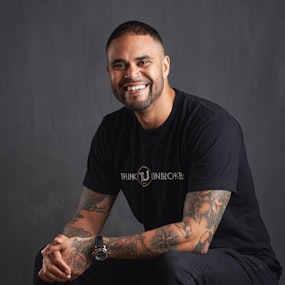
Michael Unbroken
Coach
Michael is an entrepreneur, best-selling author, speaker, coach, and advocate for adult survivors of childhood trauma.
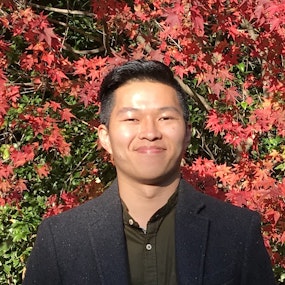
Jonathan Le
CEO & Founder
Jonathan Le is a Licensed Clinical Professional Counselor and the Founder of Anchor Point Professional Counseling, a mental health private practice located in Bethesda, Maryland. As a Cambodian, first generation college student and business owner, Jonathan is passionate about bringing mental health awareness to minority communities. He host mental health workshops to educate business professionals, local churches, and members of the Asian community about depression, suicide prevention, and anxiety. As a clinician, he is dedicated to providing comprehensive, holistic therapeutic care to the community through individual therapy, couples counseling, online courses, and clinical supervision to counselors in training.
Welcome to The Think Unbroken Podcast!
Here are some of my favorite recent guests!



























